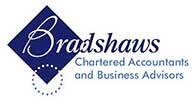VAT increase for some businesses
At the start of the pandemic, the government cut the flat rate scheme percentages for businesses in the hospitality industry. As of 1 October 2021, these rates have increased. Who is affected, and why isn’t it the end of the story just yet?

In broad terms, a business using the flat rate scheme (FRS) charges output tax at the standard rate, but only accounts for it to HMRC at a specified FRS percentage - keeping the difference. But the snag is that they can’t claim input tax on most of their purchases. There are also rules to prevent traders that don’t incur much VAT from benefiting unfairly from the FRS.
Early on in the pandemic the government cut the FRS percentages for accommodation businesses, e.g. hotels, pubs and catering services. However, these cuts were temporary. As of 1 October 2021, each of the three rates has increased, albeit not back to their original level as yet. The rates are now as follows (previous figure in brackets):
- Accommodation businesses 5.5% (0%)
- Pubs 4% (1%)
- Catering services including restaurants and takeaways 8.5% (4.5%).
These percentage rates will apply until 31 March 2022, when it is expected that they will return to their pre-pandemic levels of 10.5%, 6.5% and 12.5% respectively.
Related Topics
-
Who can't yet sign up for MTD IT?
Making Tax Digital for Income Tax (MTD IT) becomes mandatory from April 2026 for sole traders and landlords with qualifying income over £50,000. However, HMRC’s current guidance makes clear that not everyone can sign up yet. If you are preparing early, are you actually eligible?
-
MONTHLY FOCUS - PROFIT EXTRACTION PLANNING AHEAD OF 5 APRIL 2026
The end of the 2025/26 tax year is fast approaching. In this Monthly Focus we look at ways to get money out of your company tax efficiently, and consider whether limited is still the way to go for your business.
-
HMRC updates advisory fuel rates from 1 March 2026
HMRC has published the latest advisory fuel and electric rates (AFRs) for company cars, effective from 1 March 2026. Several rates have changed since the previous quarter. What should employers be aware of?

 This website uses both its own and third-party cookies to analyze our services and navigation on our website in order to improve its contents (analytical purposes: measure visits and sources of web traffic). The legal basis is the consent of the user, except in the case of basic cookies, which are essential to navigate this website.
This website uses both its own and third-party cookies to analyze our services and navigation on our website in order to improve its contents (analytical purposes: measure visits and sources of web traffic). The legal basis is the consent of the user, except in the case of basic cookies, which are essential to navigate this website.